At the BUILD conference last week, we announced the availability of Visual Studio 2013 Update 2 and Blend for Visual Studio 2013 Update 2. We have been busy improving the overall experience of XAML development in Visual Studio and Blend, and this post gives you an overview of some of the cool new features we have added to this Update that you might have missed amongst all the other big and exciting headlines.
Universal Apps for universal experiences!
We have worked hard to make it easy for developers to share code between their Windows 8.1 and Windows Phone 8.1 XAML apps, and at the same time deliver beautiful experiences. Make sure to check Navit Saxena’s talk and blog post for an in-depth discussion about how to create universal apps.
Diagnostic tools
In keeping with our mission to enable developers to create fast and fluid apps that work well on any device, we added a new Memory Usage tool to the Performance and Diagnostic hub in Visual Studio 2013 Update 2. You can read more about this feature in Harikrishna Menon’s blog post. Furthermore, the Performance and Diagnostic hub now includes a CPU usage tool and supports combining multiple tools in a single profiling session.
Device Pane updates for Windows Phone 8.1
We have added options to the device pane in Visual Studio and Blend to make it easier to design your apps. We support a high contrast mode in order to help you design accessible apps.To get a better feel of the design and layout implications of having the Status Bar shown in your app, you can toggle the visibility of the Status Bar in the designer.
XAML Editor Navigation Bar
The Navigation Bar makes it easier to traverse your XAML code. You can traverse your code by XAML elements, or by attributes within a selected XAML element. The latter is useful when a particular XAML element has a large number of attributes. We have also added the ability to quickly jump to a resource when your document contains multiple resources.
Controls for Windows Phone 8.1 XAML
Thanks to the convergence between the Windows Store and Windows Phone platforms, a majority of the Windows Store controls that developers are familiar with can now be used for Windows Phone 8.1 XAML apps! To help you get started, the following table illustrates the relationship between some of the major controls for Windows Phone 8.1 XAML, Windows Store 8.1 XAML, and Windows Phone 8.1 Silverlight.
|
Windows Phone 8.1 XAML |
Windows Store 8.1 XAML |
Windows Phone 8.1 Silverlight |
|
Hub |
Hub |
Panorama |
|
Pivot |
N/A |
Pivot |
|
WebView |
WebView |
WebBrowser |
|
ContentDialog |
N/A |
N/A |
New project templates for Windows Phone 8.1 XAML
Our new Windows Phone 8.1 XAML templates reflect our commitment to enabling users to get easily started developing apps. In addition to a blank template, there are 3 pre-installed XAML templates with sample data, each showcasing the use of the Hub, Pivot, and WebView controls.
Support for Behaviors
The Behaviors SDK released for Windows Store apps will continue to work for Windows Phone 8.1 XAML apps. This means that you will be able to continue using some of your favorite behaviors, including NavigateToPageAction and InvokeCommandAction.
We want feedback!
We are interested in what you think about these experiences and what you would like to see in future updates. Since the release of Visual Studio 2013, we fixed over 50 bugs submitted using Microsoft Connect, so you know we are listening. Send us your feedback through replies to this post, Connect bugs, User Voice requests, or the new Send a Smile button inside Visual Studio.

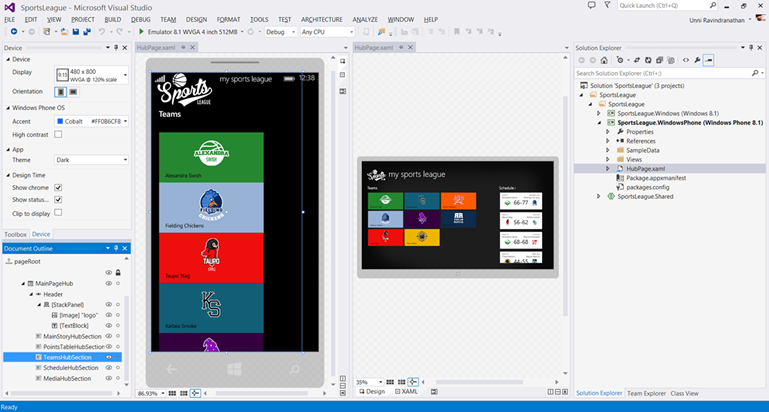
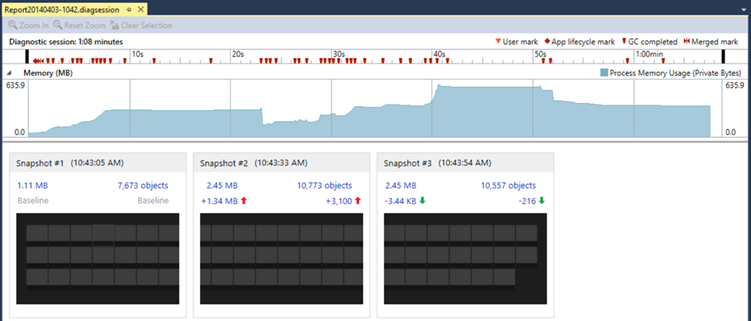
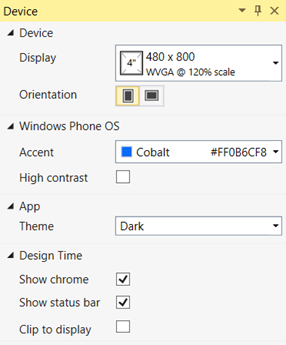
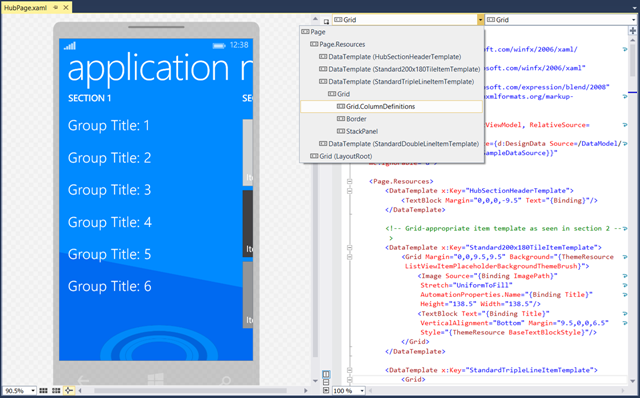
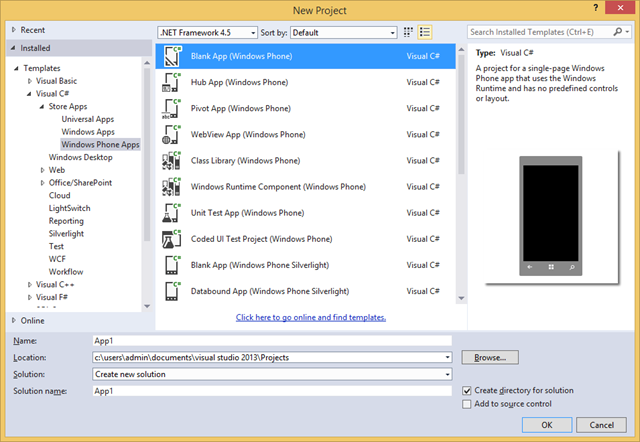
![clip_image002[4] clip_image002[4]](https://devblogs.microsoft.com/visualstudio/wp-content/uploads/sites/4/2014/04/6204.clip_image0024_thumb_4574A374.jpg)
0 comments